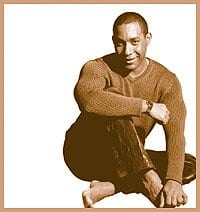Evaristo Machado (or Evi for short) has come a long way. From the sugar cane fields of Cuba and the world famous Tropicana club of Havana, Machado – who’s gay – is now known as one of Toronto’s most accomplished salsa singers.
Machado, born in 1962, was always musical and enrolled at a high school specializing in music; he trained to be an operatic tenor. The state run school taught him piano, acting, musical composition and history, as well as classical guitar. After graduating, Machado wrote songs for popular Cuban groups throughout the ’80s, played guitar in live concerts and sang with the Cuban National Radio and Tel Machadosion Chorus. Superstar recording contracts, however, don’t exactly exist in Cuba.
In 1989, he auditioned for the Tropicana Nightclub and earned a spot as a singer and dancer. The Tropicana is more than just a club. In tandem with the Cuban National Ballet, the Tropicana is a school and company known for combining classical song and dance with Latin American, salsa and Cuban styles. Well known for its flamboyant and energetic shows, the company gave Machado a chance to tour the world.
He spent six years with the company. “The Tropicana was a good school for me,” says Machado. “I was so happy there and learned so much. They taught me to be a showman.
“Ninety-nine percent of the company was gay,” Machado says, noting, however, that it wasn’t really possible to be out in Cuba. “It’s really hard to be gay in Cuba – not for the people, the population is okay with it, even families and schools – but the government is not.” Tropicana members were allowed a little more freedom because they made so much money for the nation, but for performing six nights a week, the pay worked out to US$15 a month.
While on an extended visitor’s visa in Italy, Machado began to perform around the country. After returning to Cuba for several months, he realized that there was little left for him there; he followed his cousin to Canada in 1997, applying for refugee status, and giving up his Cuban citizenship.
With his background in classical and Latin jazz, Machado linked up with celebrated saxophonist Jane Bunnett and her Cuban jazz ensemble, which includes Hilario Duran, who now does arrangements for Machado’s 10-piece band, Evaristo Machado And Orchestra.
Machado writes both music and lyrics and he calls salsa “a nice combination” of Cuba’s musical traditions. African percussion and Spanish voice combine with Flamenco and classical music to make a distinctive rhythmic sound.
The most popular salsa markets in North America are in New York and Miami but Machado (or El Primo as he is known in some clubs) loves Toronto and is anxious to become a full citizen. Toronto, he says, “does not have a big market for my music.” He hopes to change that.
Working full-time in an aluminum factory by day and rehearsing and performing at night has not been easy but with a Canadian boyfriend and a recording session in July, his new life is definitely finding its rhythm.
Evaristo Machado And Orchestra appears regularly at Berlin (2335 Yonge St); the next gig is Tue, Jun 11, cover is $10. The band will perform at the Bamboo (312 Queen St W) on Fri, Jun 21 at 10:30pm, as a part of the Downtown Jazz Festival; call (416) 593-5771 for tix.

 Why you can trust Xtra
Why you can trust Xtra


